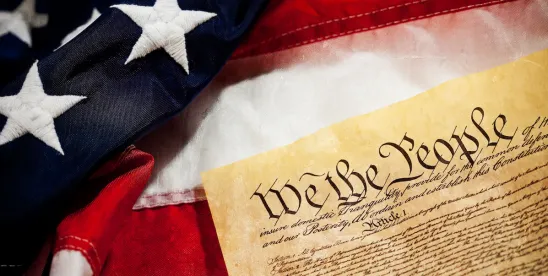On June 27, 2024, the U.S. Supreme Court issued its long-awaited decision in SEC v. Jarkesy. In its holding, the Court found that when the Securities Exchange Commission seeks civil penalties against a defendant for securities fraud, the Seventh Amendment entitles the defendant to a jury trial and thus the SEC must bring the action in federal court.
The implications of this decision, including its effect on SEC (and other agency) use of administrative tribunals, are considerable.
By way of background, in 2011 the SEC initiated an investigation into George Jarkesy and his firm, Patriot28, LLC. In 2013, the SEC brought an in-house action alleging violations of the antifraud provisions contained in the federal securities laws. After an evidentiary hearing, an administrative law judge found Jarkesy liable for securities fraud and ordered him to pay $300,000 in civil monetary penalties, among other sanctions. Jarkesy then sought review in the U.S. Court of Appeals for the Fifth Circuit, which reversed and remanded, finding that the SEC’s decision to adjudicate the matter in-house (rather than in federal court) violated Jarkesy’s Seventh Amendment right to a jury trial.
Yesterday, the Supreme Court affirmed the Fifth Circuit’s ruling as to Jarkesy’s Seventh Amendment right. Specifically, the court noted that the Seventh Amendment’s guarantee of a right to a jury trial applies to “[s]uits at common law,” which includes statutory claims that are “legal in nature.” The Court went on to say that the type of remedy the SEC sought against Jarkesy, i.e., civil monetary penalties, is the “prototypical common law remedy,” making clear that the SEC’s action was legal in nature (as opposed to an action in equity, to which no constitutional jury right is attached). This, according to the Court, follows from the fact that the civil penalties sought the SEC were designed to “punish and deter” the wrongdoer rather than to enforce some sort of public right or, as the Court put it, to “restore the status quo.”
The Court added that the “public rights” exception to the Seventh Amendment, which allows Congress to assign certain matters that might otherwise be considered “legal in nature” for decision to an agency without a jury (such as matters relating to revenue collection, certain customs and immigration laws, or relations with Native American tribes), did not apply to Jarkesy’s case because the SEC’s suit intended to target “the same basic conduct as common law fraud,” which amounts to a “matter[] of private rather than public right.”
Thus, the Court concluded that the SEC’s suit against Jarkesy implicated the Seventh Amendment and that Jarkesy was entitled to a trial by jury on the SEC’s claims.
The Court’s ruling may have significant implications. As an initial matter, the decision amounted to a partial rejection of the SEC’s administrative forum. Further, while the SEC has limited the number of enforcement actions it brings in the administrative process in recent years, given the substantial costs associated with federal court litigation, Jarkesy may force the SEC to be more selective in its future enforcement efforts.
More broadly, the Jarkesy decision calls into question whether any federal regulatory agency—not just the SEC—can bring in-house proceedings to enforce civil penalties. This is particularly noteworthy, because although some agencies (such as the SEC) may choose whether to pursue civil penalties in federal court or via an in-house administrative proceeding, other agencies, such as the Occupational Safety and Health Review Commission, are only statutorily authorized to pursue enforcement through in-house proceedings.
Thus, some have voiced concern that because of Jarkesy, the powers of certain enforcement agencies may be substantially curtailed. Indeed, as Justice Sotomayor noted in her dissent, “the Constitutionality of hundreds of statutes may now be in peril, and dozens of agencies could be stripped of their power to enforce laws enacted by Congress.”
Consequently, Jarkesy may be only the beginning.








 />i
/>i
